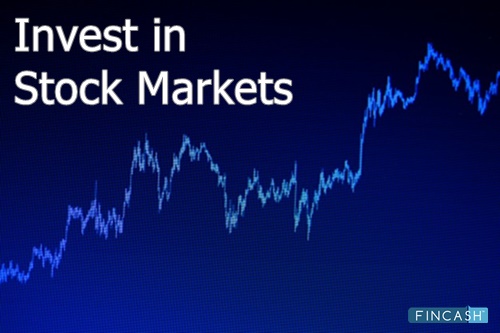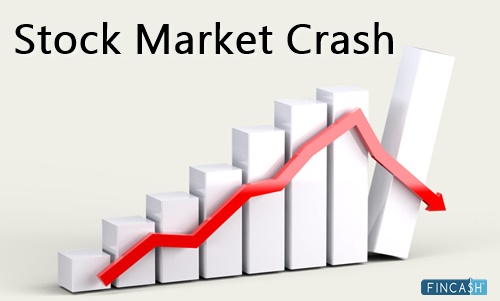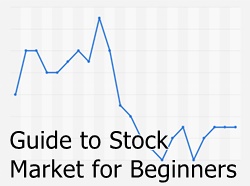
Table of Contents
Stock Market Index: How Useful is it?
Once Mark Twain divided people into two different categories: those who saw the Taj Mahal and the ones who didn’t. Something similar can be said about investors. Majorly, there are two types of investors: those who are familiar with diverse investment opportunities and the ones who aren’t.
From a prominent viewpoint of the American stock Market, India may seem nothing less than a small dot. However, if scrutinized, you are going to find similar things that can be expected from any favourable market.
When beginning to invest in the stock market, experiencing numerous questions and doubts is quite reasonable, considering that Investing and trading in the market is not as seamless as it may look. In fact, it requires accurate knowledge and precise information to make good choices so as to gain better returns.
Although there is an array of factors involved that create an Indian stock market; however, the stock Market Index is something you can rely upon to make an informed decision. This post covers the basics of the stock market and index and how useful can it be for an investor.
Defining Stock Market Index
Also known as stock market indices, the market index is a measure or indicator of something. Typically, it denotes to a statistical measure of changes happening in the stock market. Generally, bond and stock market indices comprise a hypothetical Portfolio of securities that represent either a specific segment or the entire market.
Some of the noteworthy indices in India are mentioned below:
Broad-based indices such as BSE 100 And Nifty 50
Market capitalization based indices such as the BSE Midcap and BSE small cap
Sectoral indices such as CNX IT and Nifty FMCG Index
Ready to Invest?
Talk to our investment specialist
The Need for Stock Market Index in India
A stock market index is much like a barometer that displays overall conditions of the entire market. They enable investors to identify the pattern; and hence, behaving like a reference that helps to decide which stock they can invest in.
Here are a few reasons that validate the uses of stock market index:
Helps in Picking Stocks
In the stock exchange, finding thousands of companies on the stock index list is not a new concept. Broadly speaking, when you have endless options to choose from, selecting a few stocks for investment can be nothing less than a nightmare.
And then, sorting them based on another endless list can add more to the trouble. That is where an index steps in. In such a situation, companies and shares are categorized into indices on the Basis of significant characteristics, like the sector of the company, its size, or the Industry.
Takes the Role of a Representative
When you think about investing in equities, know that the risk Factor is always at the peak, and you must make a conscious decision. Understanding about stocks individually is nothing less than an impossible task.
Acting as a representative, indexes help you gain knowledge from existing investors. By demonstrating the market (or a sector’s) trends, it educates you better. In India, the NSE Nifty and the BSE Sensex are regarded as the benchmark indices that represent the overall performance.
Executing a Comparison
Before you decide to include a stock in your portfolio, you must figure out whether it is worthy or not. And, the best way to discover that is by executing a comparison with the Underlying index as it is one easier way to compare performances.
If the stock is providing higher returns than the index, it is regarded as the one that has outperformed the market. On the other hand, if it gives lower returns, it is considered to be the one that has underperformed the market.
For instance, in India, Sensex is typically used as a benchmark. Thus, to figure out if equity has outperformed or underperformed the market, you can simply check out the price trends of the stock and index; and then, can compare them thoroughly.
How are Indexes Created?
An index is developed with similar stocks. They could be based upon company size, industry type, market capitalization, or any other parameter. Once the shares have been selected, the value of the index is then calculated.
Every stock has a different price. And, the price change in one specific stock is not proportionally equal to the price change in some other. However, any change in the prices of underlying stocks can greatly impact the overall index value.
For instance, if the prices of the securities increase, the index increases along and vice versa. Hence, the value is generally computed with a simple average of all of the prices. This way, a stock index showcases the sentiment of the overall market and the movement of the price along with its direction towards the products in commodities, financial or any other market.
In India, rather than using prices to figure out the index value, the free-Float market capitalization is majorly used.
Things to Keep in Mind
Finding out whether a fund has outperformed the benchmark is not the only way to choose a scheme. However, it is one essential factor that can help you invest in Mutual Funds. Apart from that, you must also verify whether the fund is outperforming its benchmark for years with a significant difference or not via the stock market index.
Also, don’t just make a quick decision. You must also keep return rates, your financial condition and the investment type before you put your money in the market. To avoid problems, you can also select such a fund house that has a manager with appropriate experience and knowledge in this stream.
Happy Investing!
All efforts have been made to ensure the information provided here is accurate. However, no guarantees are made regarding correctness of data. Please verify with scheme information document before making any investment.












